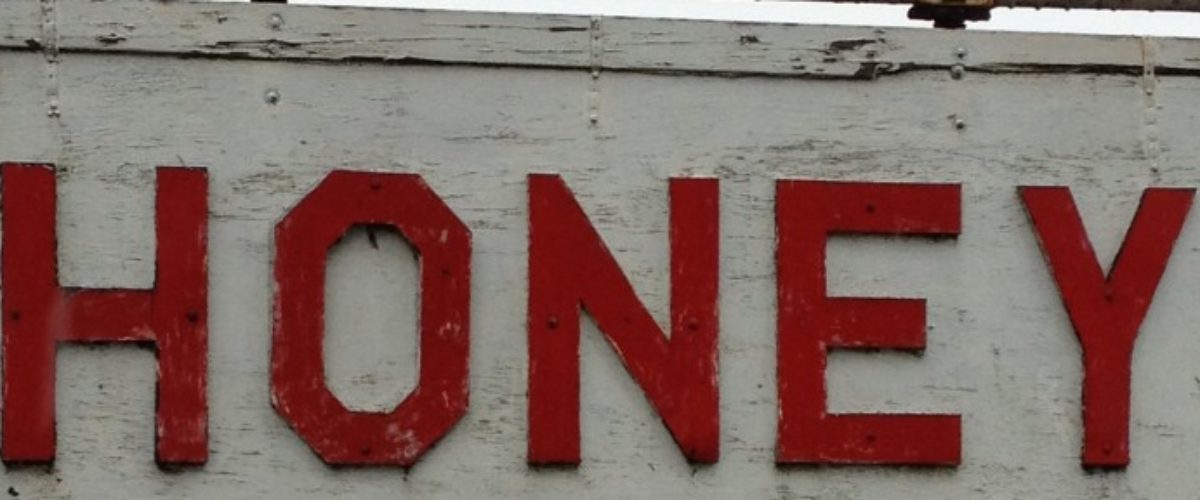For the first time, our bees brought in a dark fall honey. In the Montclair area, this will be almost all from Japanese Knotweed otherwise known as Japanese Bamboo. This invasive weed is fast growing and hard to remove. It tends to thrive around streams, highways, and railways. While it’s not great for gardeners–or native plants–it’s a big nectar producer and the bees love it.
Our new apiary near Porter Park must be close to a good source of Japanese Knotweed, because the bees went crazy for it this fall and made almost 60 pounds of this special honey. The honey is a beautiful dark amber with a slight buckwheat smell and taste–all characteristics of this varietal honey. It has a distinctive taste, and people say that dark honey has more antioxidants than light honey, so is even better for you.
The other thing to know about this honey is it crystallizes very easily. This is a natural process in all honey, and lets you know that it’s honey and not corn syrup or something else. If you want the honey to pour, then it’s simple to remove the crystals. We recommend that you heat a pan of water up to about 130 degrees, turn off the heat, loosen the lid of the jar, and put the bottle into the water–taking care not to splash water into the honey or immerse above the jar top. Let it sit as the water cools. You may need to do this a couple of times. (You can do this more quickly by heating the water above 130 degrees, but you may lose some aroma and taste.)
We’ve just got this into bottles, so if you’d like to try some of this honey, just let Oliver know when you email or talk to him.


